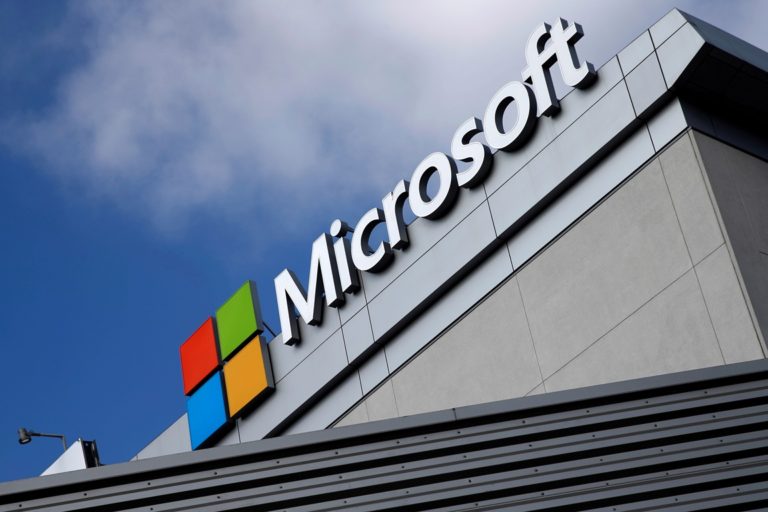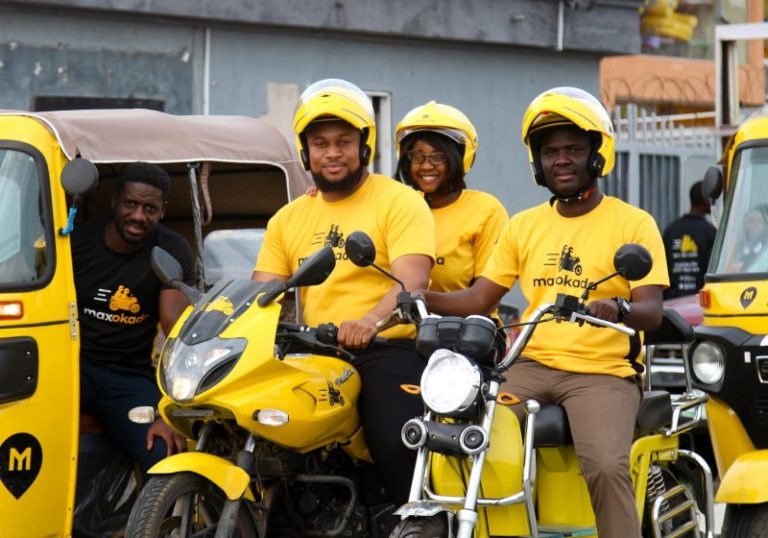Black Friday Report: The Average Nigerian Shopper Will Spend N62,250
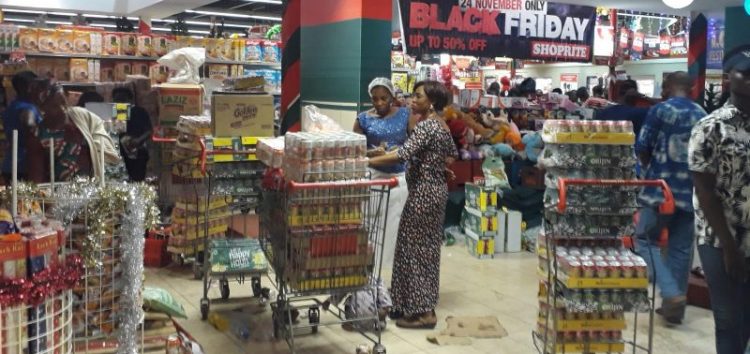
Black Friday sales are a fantastic experience for both shoppers and retailers. Shoppers receive massive discounts on products, while retailers smile from ear to ear as a result of massive sales. According to an online poll, the average customer is prepared to spend N62,250 during this year’s Black Friday sales. This is approximately 58 percent more than the 26,000 spent in 2020.
Picodi, an e-commerce platform that provides discount codes for online stores, conducted the survey. The platform of the company offers reward-based coupons and vouchers, as well as information about various deals, allowing e-commerce shoppers to save money and enjoy cheaper shopping.
This year’s Black Friday experience is unquestionably superior to last year’s. The world was in the grip of a pandemic in 2020, and shopping for anything other than food was the last thing on people’s minds.
Many Nigerians forgot about Black Friday in 2020
According to data from the Google Trends platform and online surveys conducted by Picodi, 28 percent of consumers have forgotten about Black Friday sales in 2020.
Due to the pandemic, 10% said they preferred not to go to crowded places, 24% said they didn’t need anything on sale, 16% couldn’t afford to participate in sales, and 9% had no interest in the available items on sale.
2020 was a terrifying year for the world, as countries set up shelters to care for their citizens and protect them from the devastating economic effects of the pandemic. According to the International Labour Organization (ILO), the COVID-19 pandemic cost approximately 255 million jobs.
This massive job loss resulted in a sharp increase in poverty around the world. Global labor income fell by 8.3 percent, while the global economy lost more than 4.4 percent of its GDP. The number of working people living in extreme poverty increased by 31 million, bringing the rate of extreme working poverty to 7.8 percent.
It’s not surprising that few people around the world were looking forward to Black Friday. This is especially true in Africa’s less developed countries, particularly Nigeria, where 20 percent of workers were laid off as a result of the pandemic.
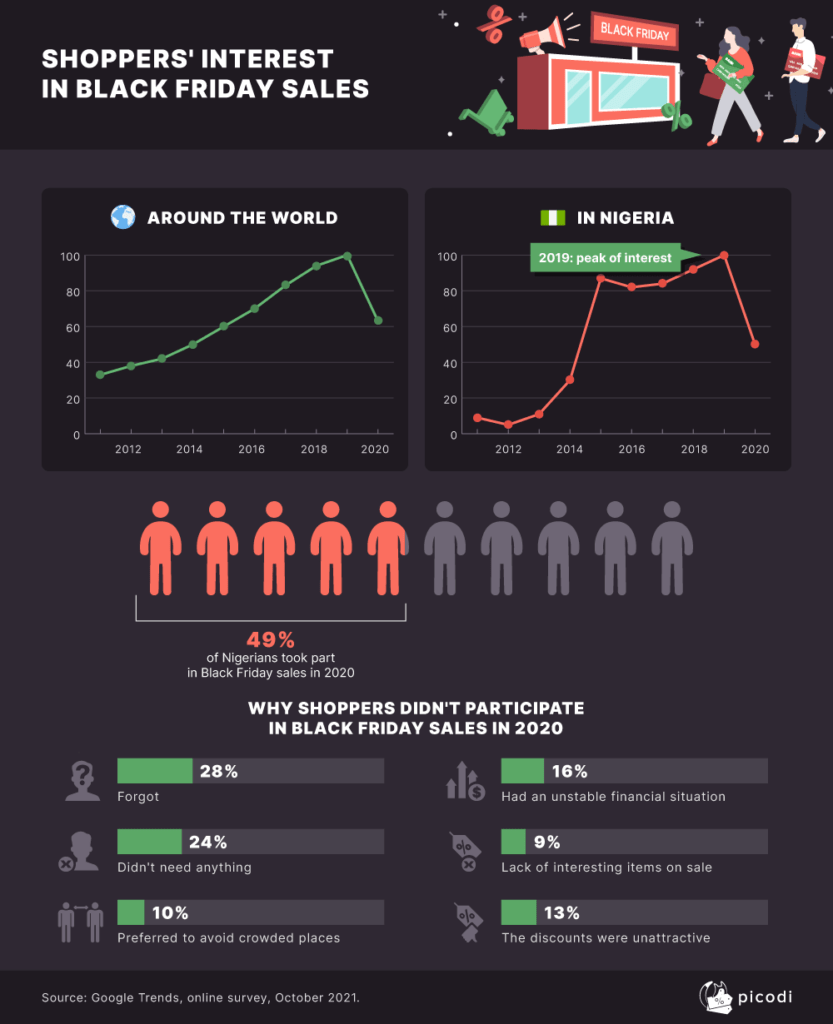
Black Friday in 2021
Because coronavirus vaccination is now available, stores are now open and ready for the influx of customers. According to the results of the survey, half of the respondents are willing to fully participate. 15% declined the opportunity to participate in the sales, and 35% are still undecided.
The possibility of receiving a discount on the desired product is frequently chosen as one of the factors that would encourage Black Friday shopping (43 percent ). Better discounts would persuade 29 percent of respondents, while additional cashback, i.e. a refund of a portion of the purchase price, would persuade 13 percent. However, 15% of Nigerians polled said they would not be persuaded by anything.
People have valid reasons for not shopping on Black Friday. Rigged discounts and uninteresting items are among these reasons. Discounts of any kind, however, are simply too good to pass up for some people. According to the survey results, Nigerians have a more positive than negative attitude toward Black Friday sales.
According to 41% of respondents, Black Friday is the best shopping holiday, and 26% believe it is a good time to buy expensive items at a discount.
There have been reports of stores raising prices weeks before Black Friday, only to slash them back to normal prices and then claim to be offering a discount. Perhaps it is for this reason that 13 percent of those polled thought the discounts were unappealing.
Popular Items on Sale
This begs the question of what people buy during this annual sale. When asked which items they would buy during this year’s Black Friday event, 49 percent said clothing and footwear. Electronics and household appliances came in second with 36%, and cosmetics and perfume came in third with 23%.
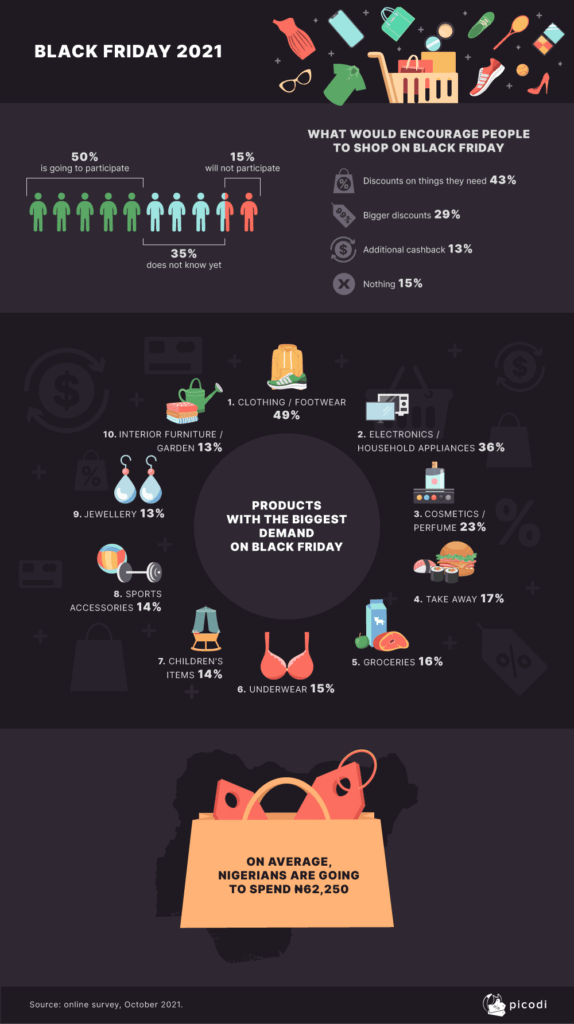
Underwear, sports accessories, jewelry, and groceries are among the other items that people intend to purchase.


